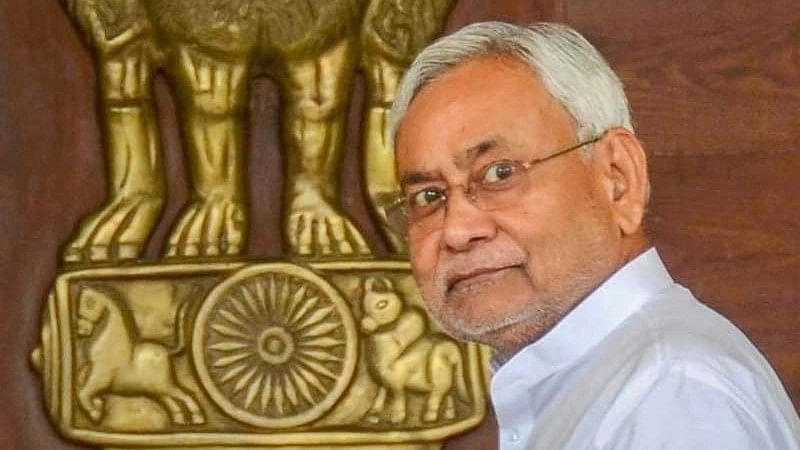
Bihar Chief Minister Nitish Kumar has changed political affiliations frequently.
Credit: PTI photo
It is galling when our elected MPs and MLAs switch their parties during election time out of avarice to get tickets at the cost of political values and ethics. The vast majority of self-centred politicians have become skilled at defecting towards greener pastures when they sense that their party is losing support from the people and has no future. It is not only unfortunate but also dangerous to democracy, and it shows nobody is interested in the development of the society or nation. These politicians just want to serve themselves and they do not adhere to any party’s ideology. What is more worrisome is that they have mastered the art of manipulating their voter base by analysing the demographics of their constituencies and have also become experts in buying votes. If left unchecked, it has the potential to erode the fundamental tenets of our democracy and its foundation. Despite having a great rule of ethics in the form of our Constitution, politicians are somewhat unethical these days.
The most plausible reasons behind switching parties are the absence of value-based politics, lust for money and power, nexus between money and muscle and reward of office, money through misuse of ministerial position and business, internal politics within the party, etc. Many leaders lack moral principles and only care about staying in power and increasing their wealth. Also, sometimes it could be due to the fear of political raids by central agencies like the
ED, CBI, etc.
But principled politicians never leave their party even when it is not in power. They always work for the party and build the party. Indian politics has a long history of defections and floor-crossing, from Gaya Lal, who changed parties three times in nine hours in 1967 and inspired the sarcastic Hindi phrase “Aaya Ram, Gaya Ram”, to the recent cases of resort politics and state government collapses.
While switching parties, politicians give tried and tested statements to convince voters, such as “It is impossible to stay in a party when there is an atmosphere of lies and suffocation”. And that the decision to defect was for the betterment of his people. The quality of Indian politicians has declined, as evident from the leader who defected and said “When I asked God, he told me to join the BJP”. These reasons are mostly driven by convenience, not by ideology or principles.
Even Sir Winston S Churchill changed his party affiliation three times in his political career: He defected to the Liberals as a supporter of free trade from the Conservatives in 1904, from the Liberals to an independent in 1922, and back to the
Conservatives in 1924. When he returned to the Conservative Party, he remarked, “Anyone can rat, but it takes a certain amount of ingenuity to re-rat.”
The anti-defection law, which was passed in 1985 and amended in 2003, is not effective because the power of proving defection vests with the speaker, who belongs to the ruling party and works partially. This is the great laxity in this law. Also, the law may have checked retail horse trading, perhaps, but wholesale horse trading continues unabated. No law is without ifs and buts, clauses, subclauses, sub-subclauses, and provisos, as well as exceptions, which give enough leeway to the administration, lawyers, and judiciary to give them the interpretation of their own respective choices! That is the way governments make laws so that one could be either punished or exonerated, depending on
what the governments want. The anti-defection law is
no exception.
The law should be very clear; there should be no ambiguity in the minds of those trying to play around with it. It should be straightforward and state that anyone elected under a certain party’s symbol is obligated to follow its directions, failing which their membership in that party must automatically end and they should be barred from contesting any public elections for at least six years. That will put a stop to all defections and the buying and selling of elected members which over the past few years has turned into the rule rather than the exception. After being elected, independents need to be prohibited from joining any party. They should be able to vote on bills, but not on motions of confidence or anything else. Until they have their elected memberships, they should not be permitted to hold any public positions. Coalitions should be allowed before or after elections, but not mergers. Coalition members shouldn’t be permitted to adopt contrasting or self-serving positions; instead, they should function as a single, cohesive unit. They must also maintain their own identities.
(The writer is retired Deputy Director of Boilers)